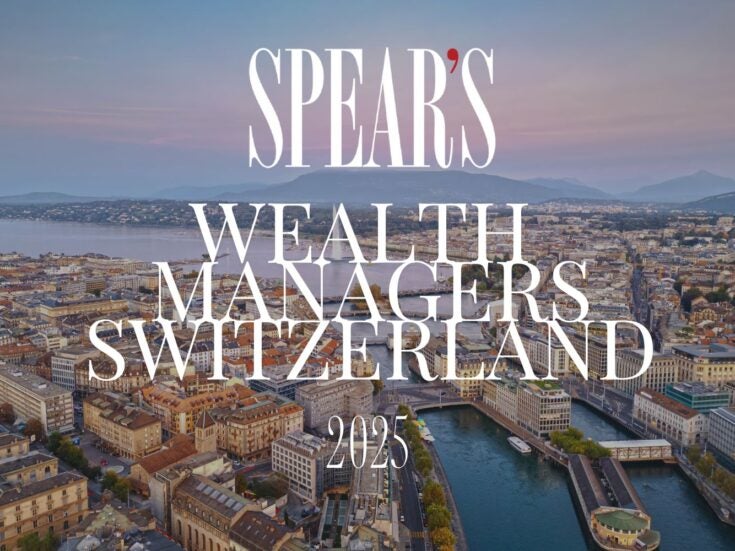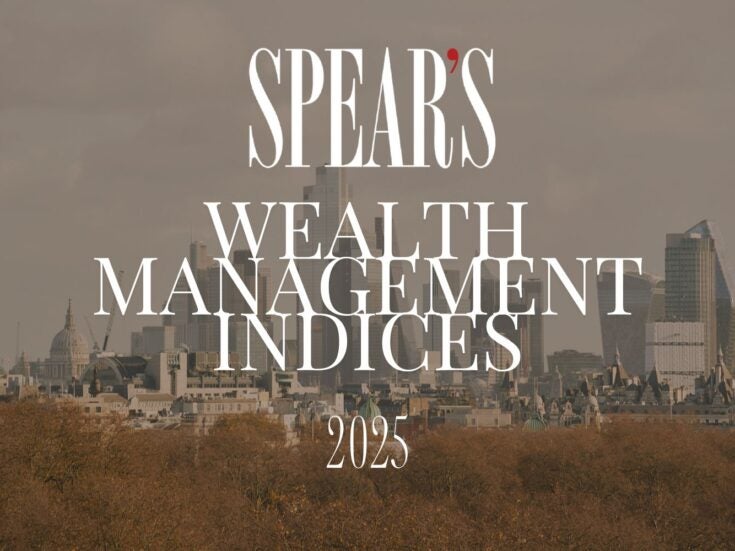
THE GAME OF RISK
Globalisation has brought with it complex dangers for investors, as financial or political upheaval, cyber-crime and even disease can spread with devastating speed – not to mention long supply chains infiltrated with horse meat. But can investors also seek positive exposure to these shifts, asks Ben Goldsmith
GLOBALISATION, OR THE increasing interconnectedness of our economies — has in recent years come to be seen as a driver of risk as much as opportunity. Long gone are the ‘End of History’ days when the West looked forward to an upward spiral of global democratisation and growth. Instead, ever-deepening risk correlations are being revealed in our financial system — notably by the banking crisis — and between global markets and our physical environment. Energy prices in particular have become a transmitter of both political and environmental risk into people’s everyday lives. When a Black Swan beats its wings in one part of the world, the hurricane batters all our houses.
How does an investor begin to pick apart this increasingly unstable picture? The upside story is well known. Fund managers around the world cravenly pursue the ‘emerging market consumer’ as a function of global growth. But can investors also seek positive exposure to ‘globalisation risk’ — thereby hedging themselves against it?
Globalisation was defined by John Micklethwait and Adrian Wooldridge in their 2000 book A Future Perfect: The Challenge and Hidden Promise of Globalization as ‘the freer movement of goods, services, ideas, and people around the world’. This breakdown provides a useful framework to analyse emerging opportunities.
In terms of goods, pockets of economic turbulence should not stop global trade rising by an estimated 6 per cent a year to 2030 and 4 per cent a year to 2050. An aspect of this trade growth is increasingly complex and extended supply chains. The number of imported product lines entering US ports tripled to 20 million between 2002 and 2010.
Cross-border supply chains are in turn vulnerable both to disruption and contamination. A range of British supermarkets and manufacturers have received a very public lesson in supply-chain mismanagement as their beefburgers and lasagnes were revealed to contain horse meat.
RESPONDING TO THIS diversification of US imports, the US Food and Drug Administration stated in its 2011 strategy document that ‘the growing challenges of globalisation have so far outstripped the FDA’s resources for inspection and quality monitoring’. It placed the development of a global food safety system at the centre of its four-year plan. The UK’s Food and Environment Research Agency has also announced the creation of a new food safety lab, highlighting the ‘globalisation of food’ as the cause.

Pictured above: Globalisation as depicted by Phil Wong
Beyond food, sectors ranging from automotive to children’s toys are being affected by the collision between international supply chains — which pass through a range of different regulatory environments — and increasingly stringent domestic safety standards. These shifts are driving a $110 billion global product-testing market, which is projected to continue growing by up to 7 per cent a year. Our global-growth fund holds Intertek and Oxford Instruments to gain exposure to this market, as well as precision-measurement leaders Mettler Toledo and Agilent.
However, there is also a second response to insecurity of supply, which is to shorten supply chains and bring them onshore. For this reason, we also hold certain US rail stocks — in the belief that energy pressures and supply-chain volatility will encourage more regional sourcing.
THE SECOND LEG of the authors’ definition is the freer movement of services and ideas. Risk here focuses on the internet. As the ‘digital universe’ grows from 117 gigabytes of data per person in 2009 to a projected 4.7 terabytes by 2020 — 40 times as much — both the volume and type of cyber-crime will grow. The volume of cyber-attacks has already grown fivefold between 2005 and 2010. The country of origin was only identified in 67 per cent of cases, with Russia the main source at 30 per cent and the USA second at 10 per cent. (I am not sure whether to be proud or worried that the UK produced only 3.5 per cent of attacks — behind Romania.)
The US is meanwhile the main victim of cyber-attacks, at 23 per cent, followed by China, Germany and the UK. Companies now regard the chance of a successful cyber-attack against them as not ‘if’ but ‘when’. Given that this would put them in the company of giants like Visa, Mastercard, Sony, Nissan and Lockheed Martin, it is perhaps not surprising.

It is not merely the volume of cyber-crime that is changing, but also the nature of it. This is driven by the uses of the internet multiplying to include storage of personal information and social networks. A full 7 per cent of US households — 8.6 million — include a member over the age of twelve who has been the target of identity theft. Social media have also opened up a new front for hackers. These ‘social-engineering’ attacks are often designed to fool not computers but users. The main motivating factors for these types of attack are financial gain, information theft and competitive advantage.
Taken together, the cyber-security market is expected to almost double to $120 billion from 2011 to 2017. Our current fund exposure is via EMC, which has several businesses providing IT security and compliance solutions as well as a separately listed spin-out, VMware, which focuses on the growth area of cloud computing.
THE LAST, AND perhaps the most visible, aspect of globalisation is the freer movement of people. In 2010 there were 2.4 billion domestic and international air passengers, 6 per cent more than ever before. The radical increase in speed and decrease in cost of mass travel has introduced huge inter-correlated risks, foremost among which are pandemics caused by new strains of viruses.
The UK has been identified as being at particular risk of pandemic spreads due to its situation as a travel hub. The most recent scare was the 2009 swine flu epidemic, which claimed 16,931 deaths worldwide and placed UK health authorities under intense pressure over available stocks of the Tamiflu drug.

We hold companies such as Thermo Fisher and Pall Corporation, which sell equipment into health-testing laboratories that work on pandemics; we also hold diagnostic companies such as Cepheid. As a conservationist, I cannot help but also be concerned by the parallel spread of flora and fauna diseases, such as the ash dieback virus which is now present in the UK having killed 90 per cent of Denmark’s ash population.
Surveying the above topics, it is hard to dispute the acronym coined by Shell to describe globalisation: Tina, meaning There Is No Alternative. Climate change, attrition of resources and attendant conflict could still deliver an alternative — but it is not a welcome one. I do not advocate hair-shirt solutions or the uncompromising pessimism of a US ‘survivalist’. But I would reach for the home-grown wisdom of our own Boy Scout movement when surveying any portfolio: Be Prepared.







